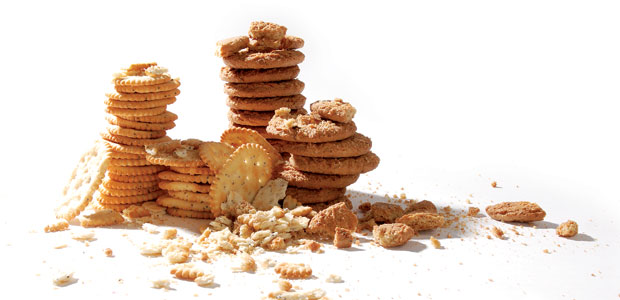Advertisement
Too Good to Be True?
The problems with palm oil

Palm oil is the second-most consumed oil in the world and it is quickly replacing the partially hydrogenated fats (or trans fats) in many of your favourite treats. But there’s a dark side to palm oil. Read on to discover what you need to know about this controversial oil.
Palm oil, derived from the fruit of the oil palm tree (Elaeis spp.), is abundant and inexpensive. It is also odourless, tasteless, and solid at room temperature, which makes it ideal for use in packaged foods, margarines, and shortening. Palm oil is trans fat- and cholesterol-free, making it an ideal replacement for those pesky partially hydrogenated oils.
Good Oil, Bad Fat
In its purest form, palm oil is a source of valuable nutrients, including beta carotene, vitamins E and K, magnesium, and essential fatty acids. However, this form is rarely used, says Patricia Chuey, registered dietician and manager of nutrition affairs for the Overwaite a Food Group.
Instead, food manufacturers use modified palm oil, which is high in saturated fat and no more nutritious than the partially hydrogenated oils it is replacing, says the Center for Science in the Public Interest (CSPI). In fact, a recent study published in the Journal of Nutrition found a link between the consumption of palm oil and an increased risk of heart attack.
Current recommendations to reduce saturated fat intake have led to listing palm oil among the foods to avoid, says Dr. Jennie Weisenburger, a naturopathic doctor at the Bellevue Natural Health Clinic in West Vancouver. “There are different schools of thought when it comes to saturated fats and the health benefits and the health risks associated with consuming them,” she says. At issue is palmitic acid (the main saturated fat in palm oil); some studies have linked it to high cholesterol and heart disease and some have not, Weisenburger explains.
Palm Oil and the Environment
It’s not just the saturated fat in palm oil that is raising concerns. Palm oil is grown predominantly in Malaysia and Indonesia, where palm oil plantations contribute to the destruction of Southeast Asian rainforests, says a CSPI report released in 2005. Rather than using abandoned agricultural land, which is costly to rehabilitate, palm oil producers clear rainforests and peat swamp forests to create plantations. The soil and water from these lands are polluted by pesticides used on the plantations and the release of effluents into the environment. According to the CSPI report, they are also endangering the lives of the Sumatran tiger, orangutans, elephants, and rhinoceros.
The American Palm Oil Council (APOC) calls the CSPI’s report “highly inaccurate,” accuses them of “excessive exaggeration,” and suggests the study’s authors have never been to Malaysia to study the oil palm industry. Strict laws are in place in Malaysia to ensure the protection of the environment and its wildlife, says the APOC. They point to the Malaysian Palm Oil Industry’s involvement in the Roundtable for Sustainable Palm Oil, an initiative focusing on the development and maintenance of responsible, sustainable palm oil plantations, as evidence of their commitment to the environment.
Finding Balance
Though some palm oil producers likely shirk their responsibilities, others take every step necessary to protect the environment and its wildlife. Palm oil and the issues that surround it serve as a good reminder of the importance of being mindful of the impact of our food sources on the earth.
There is no question that palm oil, in its purest form, contains valuable nutrients and can be part of a healthy diet. But, as always, be cautious of consuming too many processed foods. Look for organic expeller-pressed palm oil that is minimally processed. Avoid palm kernel oil, which is less healthy because the oil is extracted from the pit with a hydrocarbon solvent.
Healthy living means not only making choices that are wise for our species but also making choices that keep the Earth and the rest of its inhabitants safe.
Easy Ways to Limit the Palm Oil in Your Diet
- Get your dietary fats from polyunsaturated fats, especially omega-3 fatty acids (fatty fish, flaxseeds, nuts, nut butters, liquid egg products), and monounsaturated fat (avocados and vegetable oils such as canola, olive, and soybean oils).
- Limit your consumption of processed foods.
- Bake homemade cookies and treats instead of buying commercially prepared treats.
- Daily calories from fat should represent only 20 to 35 percent of total calories (about 45 to 75 g per day for women and about 60 to 105 g per day for men), recommends the Canadian Heart and Stroke Association.




